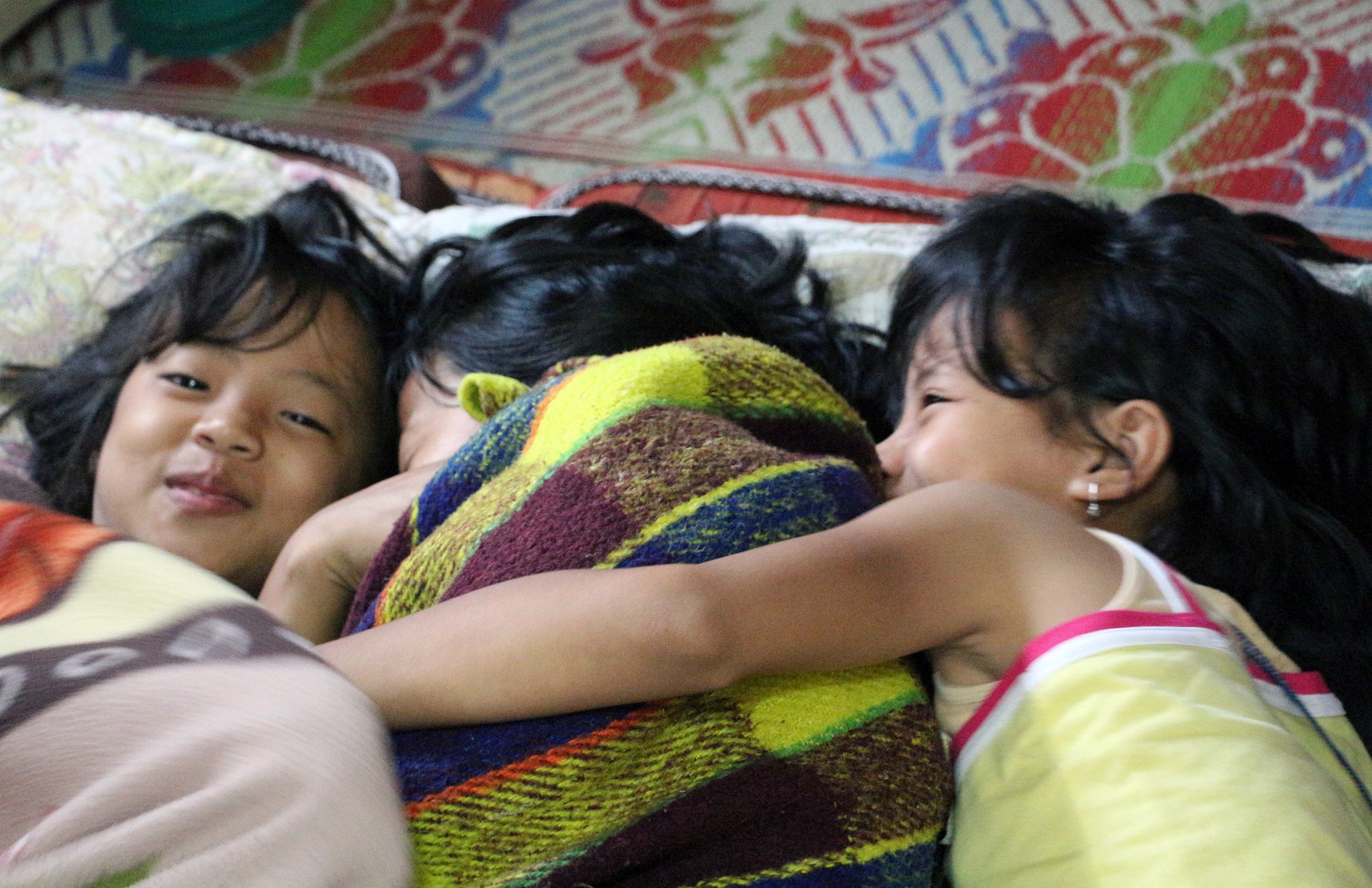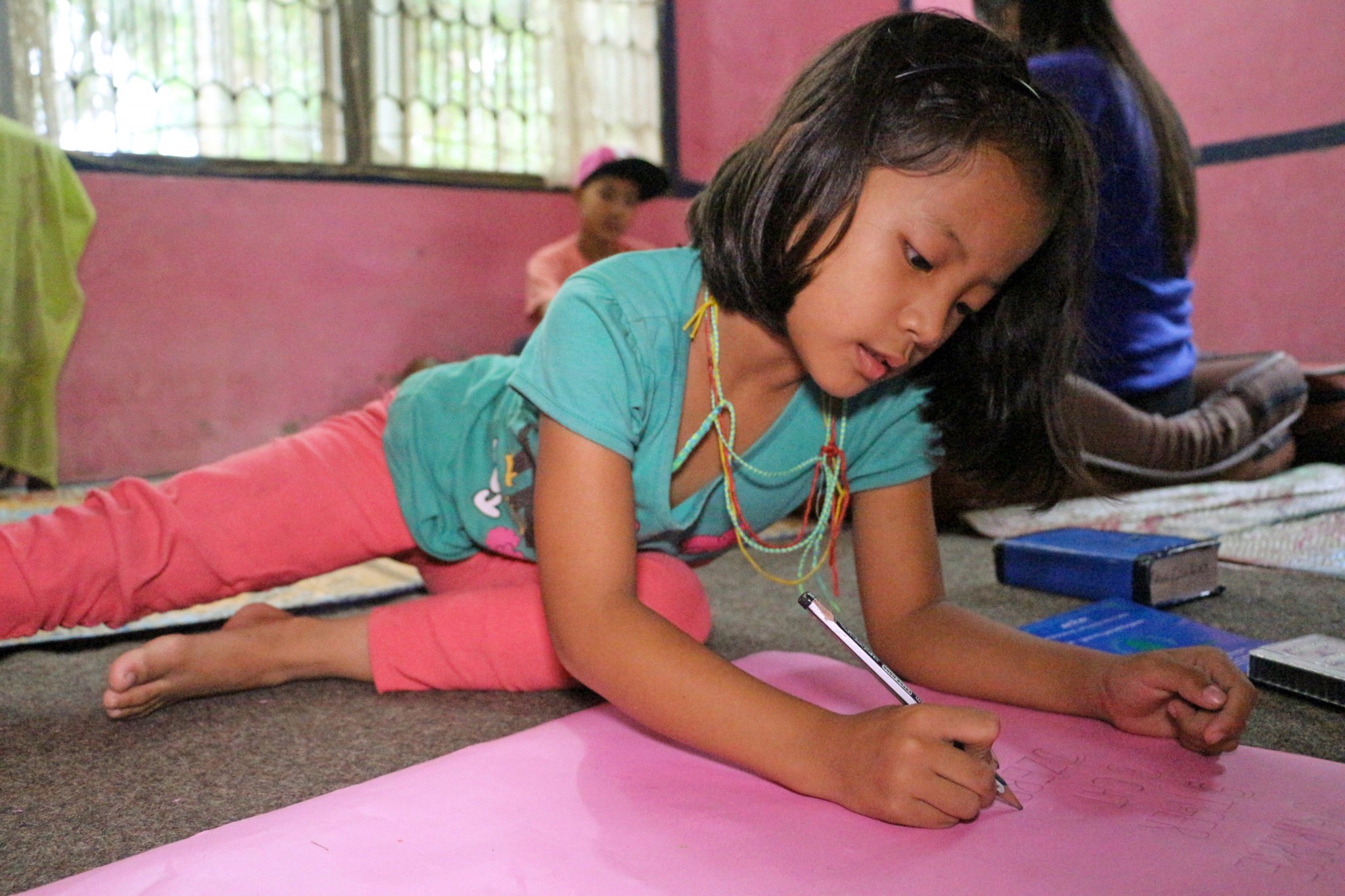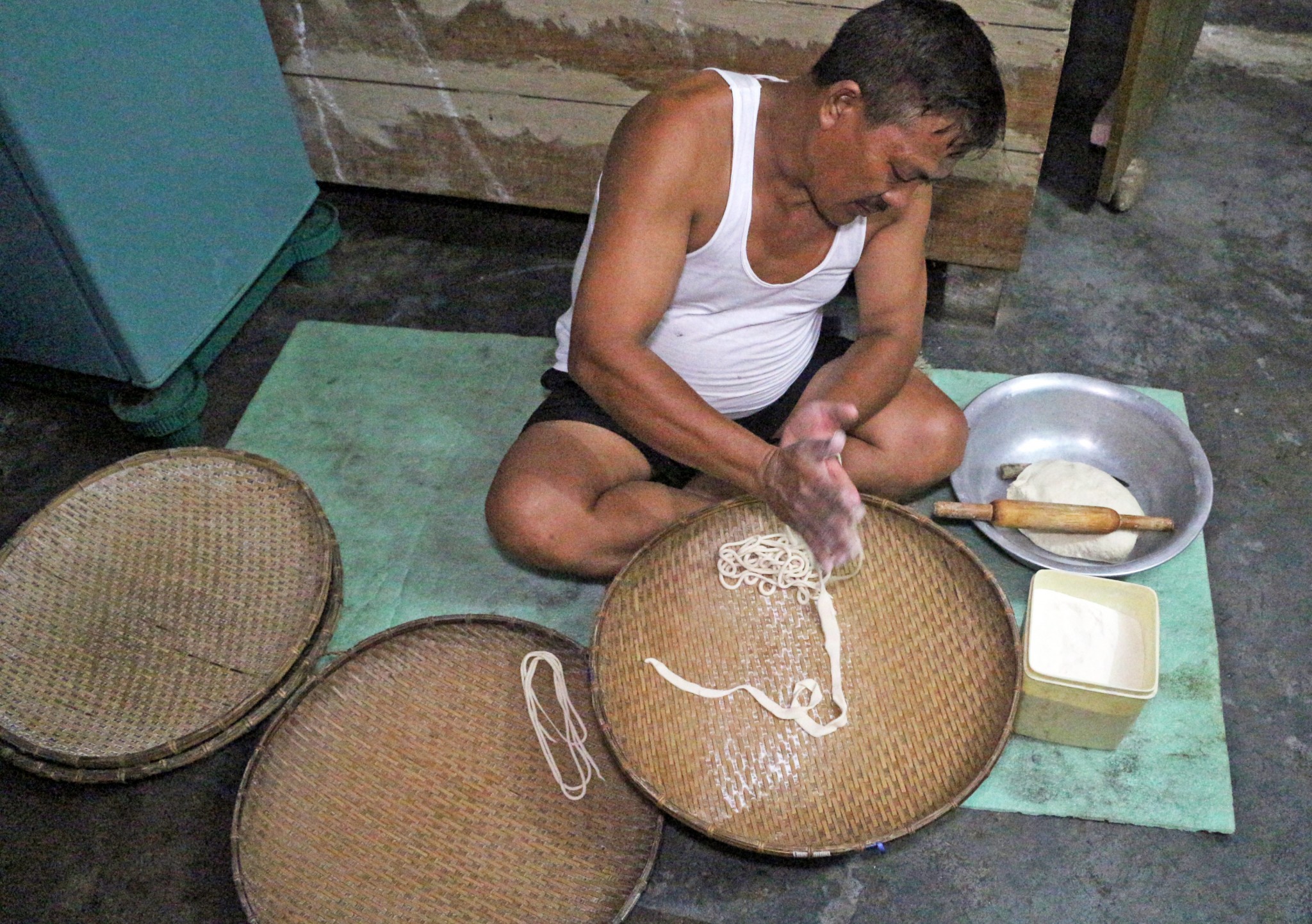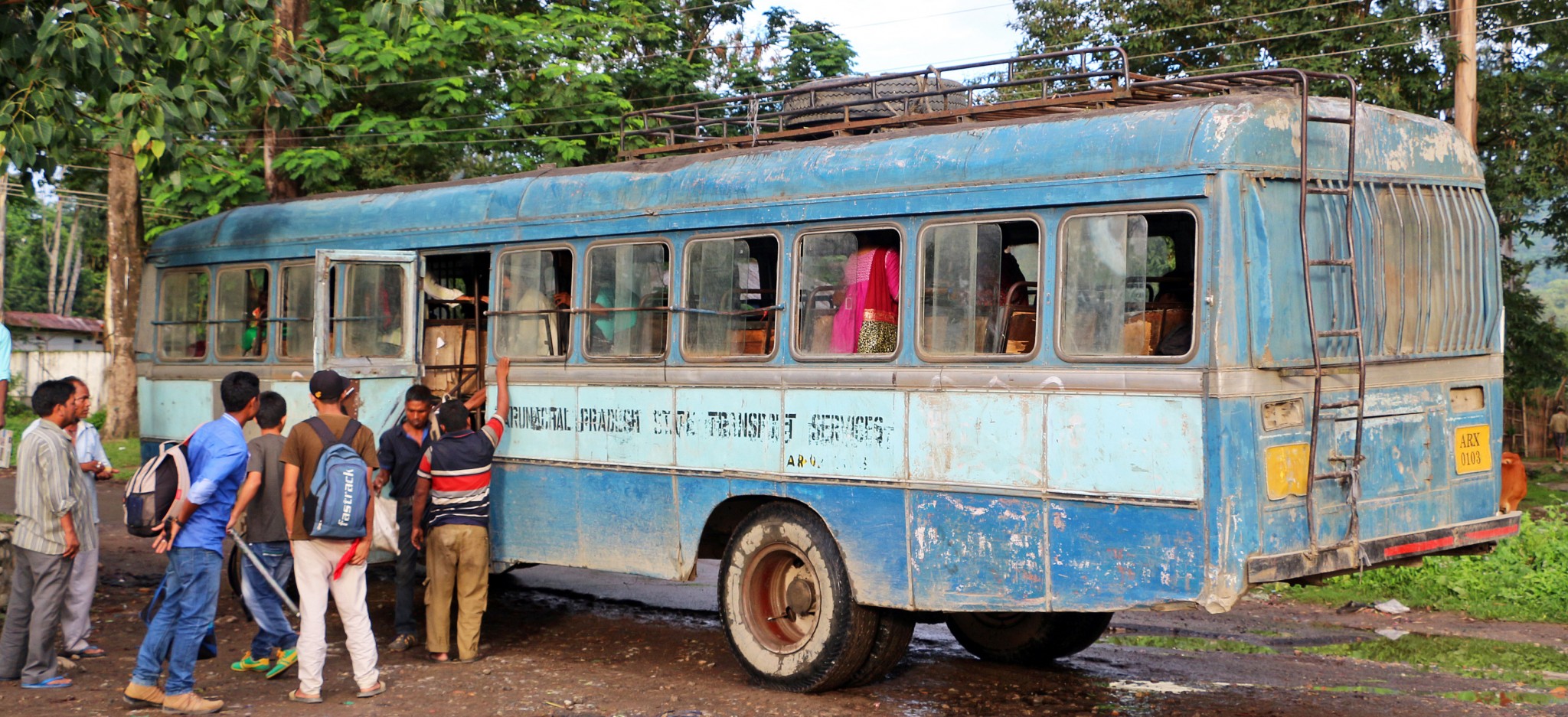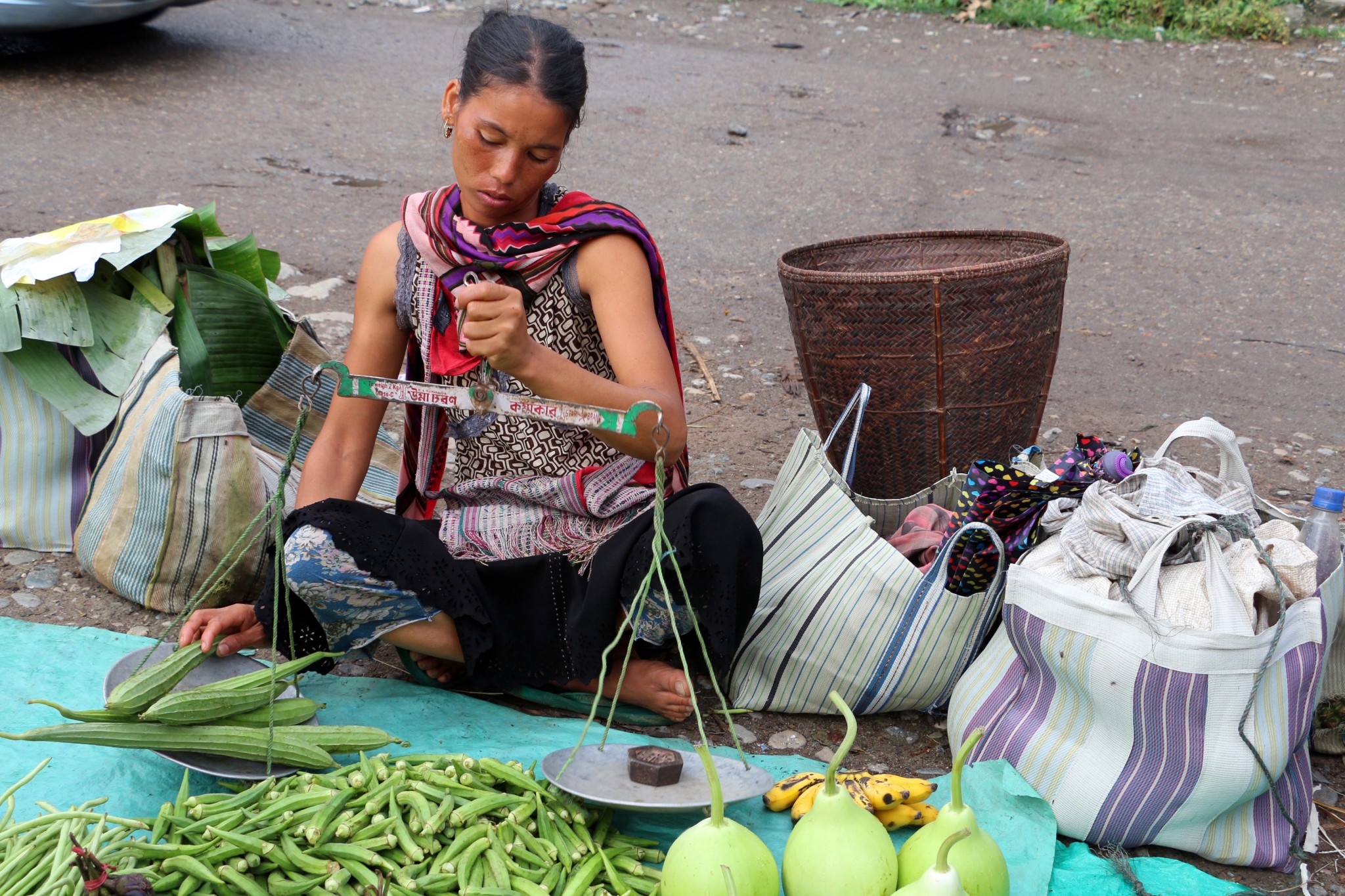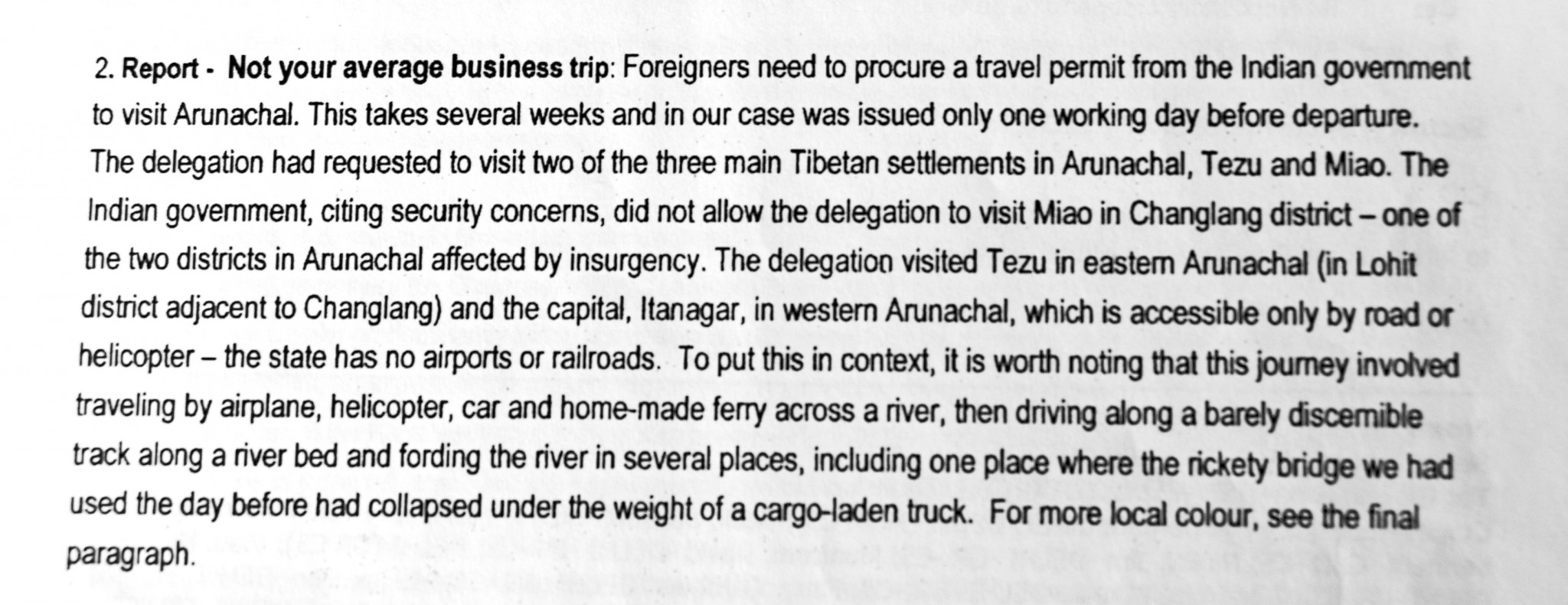Pre-departure preparation
One Sunday back in June 2014, the grey sky over Miao opened up and dumped rain on the settlement for hours, leaving tiny pools in the uneven dirt roads, and filling water storage basins outside of peoples’ homes. The monsoon was coming. From mid-June until mid-September people wouldn’t leave their homes without an umbrella. Clothes wouldn’t dry on the line but there would be plenty of water and the oppressive humidity of the summer would break.
Dolma spent most of the day inside with her siblings. She tried to help her youngest sister with her English homework but Dolkar resisted by squirming around and laughing at her own silliness. On the floor of their living room, Dolma hovered over a large piece of cardboard and tried to instruct Dolkar to write the name of different animals in English. Dog. Giraffe. Tiger. Cat. Rabbit. The animals weren’t from any region of the world; to Dolkar who could speak barely any English, they were just scribbles on a page.
In the evening, Dolma joined her father in the kitchen. The hardened military man, and skilled farmer was also a proficient noodle roller. The Pemako people of Tibet were known for putang, or hand made noodles and the tradition had passed down from Dolma’s great grandfather to her grandfather and on to her own father. The two sat on the floor working the dough. Dolma rolled it out and then cut the flattened dough on a wooden board in a circular formation. Carefully she pulled the snake-like piece apart, covered it in flour and passed it to her father who expertly rolled the dough between his quick moving palms into a never-ending spiral of noodles. It took over an hour to complete a pile big enough to feed the family for the next two days. Dolma’s father boiled the noodles and prepared a sauce to go with it made of chili, turmeric, onion, tomato, garlic, salt, and flour. By 9 p.m., the family sat together with a plate of boiled putang, lightly oiled, and covered in the spicy sauce.
In February, when Dolma found out she would be leaving for Canada in the next group she returned home not only to be with her family, but because she needed to complete and pass the necessary medical examination and have an interview with a member of Canada’s High Commission. Dolma traveled four hours by bus with a group of others to meet with the Canadian officials in Tinsukia, a small city in the unrestricted state of Assam.
The Canadian diplomats didn’t come to Miao. They’ve never stepped foot in the community. The area requires a restricted area permit for two reasons: an ongoing border dispute with China, and an insurgency problem involving the Naga people who want to establish their own state along the Burmese-Arunachal border. In February, The Times of India reported an IED blast that killed an Indian soldier and injured 10 others. In Miao, people said it’s not uncommon to see members of the Indian military with guns in hand doing patrols along the road in front of their homes.
Even when a Canadian delegation visited Arunachal Pradesh in January 2011 the Indian government wouldn’t allow them to travel to Miao because of security concerns. Instead, the delegation could only visit the Tezu Tibetan settlement. After a five-day visit, they concluded in a report that the area “is isolated geographically and psychologically from ‘mainland’ India, and even compared to other parts of Northeast India, feels remote and disconnected.”
Dolma remembers the pre-departure interview as a brisk 20-minute meeting with two female Canadian immigration officials. They asked her why she wanted to go to Canada and if she wanted to take a government loan to purchase tickets for the flight. The officials offered a two-year payback period with an interest rate of less than two per cent. Many of the Tibetans were suspicious of the offer at first. In India, interest rates are typically much higher. But Dolma and most the others who came to Canada decided to take the deal. In her brief interview with the first Canadians she’d ever met, the officials told her that in Canada men and women are equal – this would be the only cultural orientation she would get.
None of the Tibetans going to Canada would receive any sort of orientation to prepare them for their new way of life. The Indian government didn’t offer anything. The Canadian government said they prepared them with an information bulletin on their website, where they could access the Welcome to Canada guide. But only a couple of homes have computers, the Internet in Miao rarely works and it’s unlikely it would have the capacity to load the 148-page handbook. The Tibetan government-in-exile did a lot more for the lottery winners in Arunachal Pradesh. They handled the lottery selection process and said they were doing the best from their end. Still, they have other refugee settlements to take care of in India and Nepal and this group would be leaving and assisted by Project Tibet Society in Canada.
“Those who applied for life in Canada, they should have prepared basic English skills, to know computer skills, things like that, and we encourage them to have some professional skills,” said the prime minister of the Tibetan government-in-exile, Lobsang Sangay. “Encouragement we have done but as a group we could not give training.”
The government-in-exile expects that the group going to Canada has taken their own responsibility to somehow prepare themselves. Sangay said that quite a lot of things could have gone wrong, but so far it’s going well.
“From the last time I went to Canada, from the local level, Tibetan associations are very actively involved and then they are learning from experience and doubling their efforts so hopefully it’ll be expedited,” Sangay said about moving the lottery winners out of India to Canada as fast as possible.
By June 2014, after Dolma’s interview and medical check, everything was in order for her to leave. The next group was informed they would depart sometime in August, but Dolma wouldn’t be going with them. There was a problem with her medical tests. On her X-ray something unusual showed up on her lungs and she would have to redo the medical exam to make sure there were no issues. If you didn’t pass the exam, you couldn’t go. No one had experienced this yet, but Dolma had concerns about the tuberculosis that disrupted her young adult life would come back to haunt her.
NEXT PART
Credits
Story and visuals by SHANNON LOUGH
Carleton University 2015

